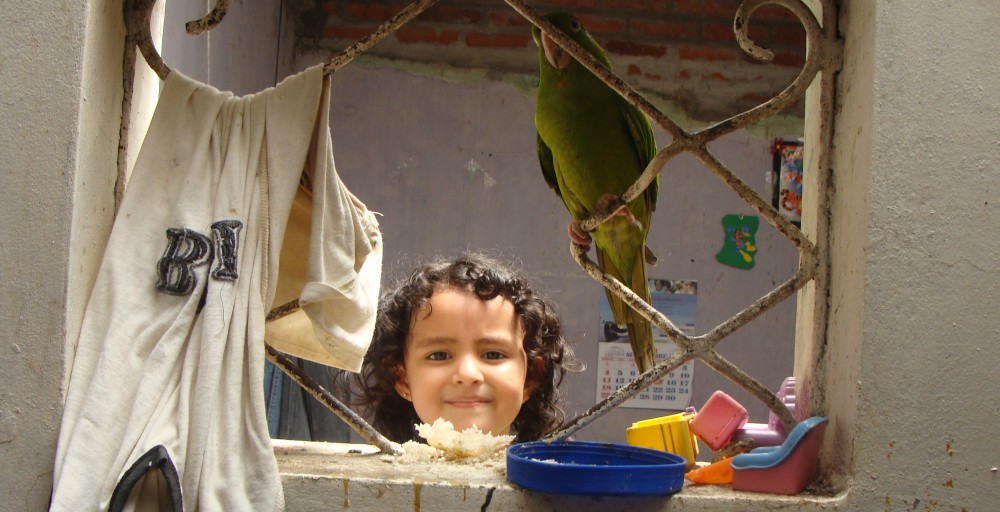After 6 years of CAFTA, growing poverty in El Salvador — including for workers producing for export to U.S. companies.
While data recently released by the Salvadoran Government point to improvements in several “social indicators,” the country is experiencing increased poverty levels, including among workers in factories producing for export to the U.S. under the Central America Free Trade Agreement (CAFTA).
On the positive side, between 2000 and 2011, the percentage of homes with electricity has increased from 80.53 percent to 83.12 percent. The percentage of homes with running water also increased from 72.6 to 84.3. And illiteracy has decreased from 17.5 percent in 2000 to 12.7 percent in 2011.
But, according to the Salvadoran Government Office of Statistics and Census, the number of households living in poverty increased from 34.8 percent to 40.6 percent between 2007 and 2011.
Within the Government’s total poverty category, extreme poverty increased from 10.8 percent to 12.2 percent of households during the same period. Extreme poverty is defined as households whose income does not cover the cost of a basic food basket for the average Salvadoran family — $179.42 per month for a family of 3.85 members.
So maquila workers toiling in factories producing garments and other products for export duty-free to the U.S. under the CAFTA remain impoverished — in fact their poverty is increasing.
A maquila worker working full-time (44 hours a week) and earning the legal full-time wage of $187.60 a month just barely makes it out of “extreme poverty” into poverty (meaning that she is earning enough to cover the average family’s food costs alone, if they spend on nothing else.)
The Government arbitrarily sets the poverty line for a family (of 3.85 persons) at $358.84 a month, simply doubling the cost of basic food, though local experts—and the workers themselves — say this does not come close to meeting a family’s actual expenses for housing, utilities, transport, clothing, shoes, schooling and medical care.
But even by this low bar, maquila workers laboring full time and more find it difficult or impossible to bring their families out of poverty:
A maquila worker who is her family’s principle breadwinner, working the regular legal 44-hour workweek plus 16 hours of overtime each week, remains in poverty, earning $287.44 a month, $71.44 short of the Government’s poverty line. To escape poverty she will have to work full time (44 hours a week) plus 110 hours a month of overtime, which will bring her and her family 36 cents above El Salvador’s poverty line. A family with two adults, both working full time in maquila export factories, plus two children is just at the poverty line.
According to Alexander Segovia, chief assistant to El Salvador’s President Mauricio Funes, increases in the price of food, fuel and medicine have been a major factor in the increased cost of living that has kept poverty levels high. From 2000 to 2011, food costs have increased by 55% in urban areas and 66% in rural areas. (La Prensa Gráfica, October 9, 2012)
According to CAMTEX (Chamber of Textiles, Clothing and Free Zones of El Salvador) as of December 2011, there are approximately 71,417 maquila workers in El Salvador. Over 90 percent of the clothing they sew is exported to the U.S., including to many well-known U.S. companies like Wal-Mart, Nordstrom, Hanesbrands, Gap, North Face, Adidas, Nike, Reebok, Lacoste, Aéropostale, Dallas Cowboys, Fruit of the Loom and Delta.
Counted as a block, five Central American countries (Guatemala, Honduras, El Salvador, Nicaragua and Costa Rica) constitute the second largest source of apparel entering the U.S., surpassed only by China. According to the U.S. Department of Commerce’s Office of Textiles and Apparel (OTEXA), U.S. imports from these countries totaled $7.199 billion in 2011 and $6.018 billion in the first ten months of 2012, accounting for 9.27 percent and 9.2 percent of U.S. clothing imports respectively.
Under the CAFTA, these products enter the U.S. market duty-free. In El Salvador (as in the rest of Central America), companies that assemble clothing for export do not pay property taxes, municipal taxes, taxes on imports (of machinery and raw materials) nor to export their products.
Sources:
Multiple Purpose Survey of Households 2011, General Office of Statistics and Census
[Encuesta de Hogares de Propósitos Múltiples 2011 (EHPM), elaborada por la Dirección General de Estadística y Censos, DIGESTYC]
La Prensa Gráfica. “El desempleo en el país pasa de 7.1% al 6.6%.” October 9, 2012.
U.S. Department of Commerce, Office of Textiles and Apparel (OTEXA), Major Shippers Report: Total Apparel Imports by Country, October 2012 data. (Accessed December 11, 2012)
